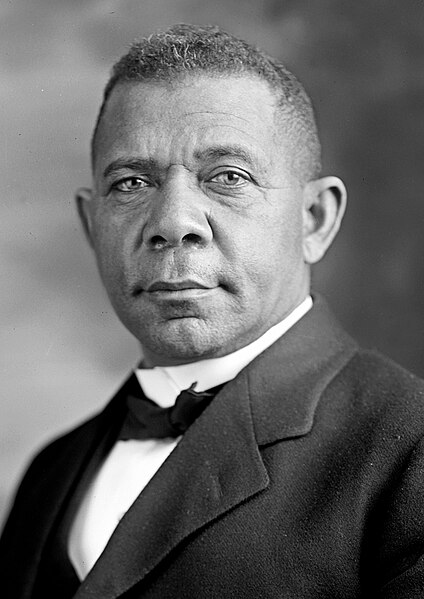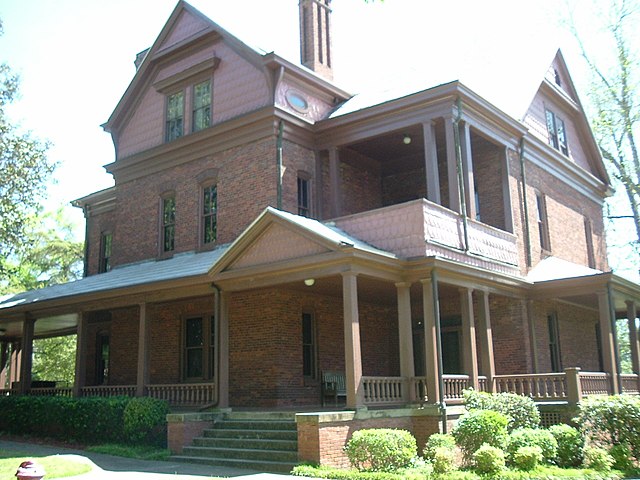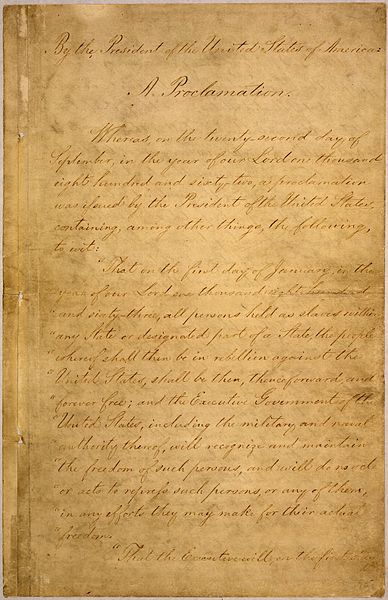Booker Taliaferro Washington was an American educator, author, and orator. Between 1890 and 1915, Washington was the primary leader in the African-American community and of the contemporary Black elite.
Washington in 1905
On the 100th anniversary of his birth, April 5, 1956, the US Post office issued a commemorative stamp depicting the birthplace of Booker T. Washington in Franklin County, Virginia
The Oaks – Booker T. Washington's house at Tuskegee University
A history class conducted at the Tuskegee Institute in 1902
Emancipation Proclamation
The Emancipation Proclamation, officially Proclamation 95, was a presidential proclamation and executive order issued by United States President Abraham Lincoln on January 1, 1863, during the American Civil War. The Proclamation had the effect of changing the legal status of more than 3.5 million enslaved African Americans in the secessionist Confederate states from enslaved to free. As soon as slaves escaped the control of their enslavers, either by fleeing to Union lines or through the advance of federal troops, they were permanently free. In addition, the Proclamation allowed for former slaves to "be received into the armed service of the United States". The Emancipation Proclamation played a significant part in the end of slavery in the United States.
Emancipation: The Past and the Future (Th. Nast, 1863)
The five-page original document, held in the National Archives Building – until 1936 it had been bound with other proclamations in a large volume held by the Department of State
Abraham Lincoln
Carte de visite image of Peter, taken in Baton Rouge spring 1863; widely distributed by abolitionists to expose the brutality of slavery








